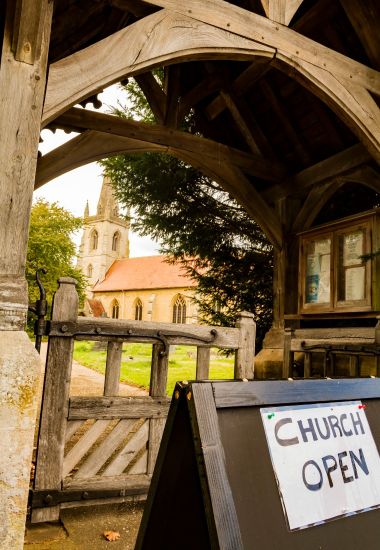Most Brits think churches and chapels are important for society

The number of Christians may be declining but affection for church buildings remains strong, a new Savanta poll suggests.
The poll, commissioned by the National Churches Trust, found strong support for churches, chapels and meeting houses.
Of the 2,061 UK adults surveyed last December, three quarters said they were important for society as they provide space for activities and support local people with initiatives like warm spaces and food banks.
Nearly three quarters (73%) said they were an important part of the UK's heritage and history.
More than half of UK adults (54%) said they had visited a church, chapel or meeting house in the past year.
A quarter had attended a religious service, while one in five (22%) visited for a non-religious community activity or service such as a foodbank, playgroup, lunch club, concert or meeting.
One in six (17%) said they had visited as a tourist.
Young people were more likely to have visited for a non-religious community activity or service than older respondents - 32% of 18 to 34 year olds, compared with just under a quarter (24%) of 35 to 54 year olds and 12% of people aged 55 and over.
Half of respondents agreed that government support should be available to help churches, chapels and meeting houses cover the cost of repairs and maintenance. Only 22% disagreed, while a quarter said they neither agreed nor disagreed.
Claire Walker, Chief Executive of the National Churches Trust said: "With an increasing number of churches under threat of closure, the findings of our Savanta opinion poll show that church buildings have the overwhelming backing of the UK public.
"They recognise that churches provide important benefits to society and are also a key part of our history and heritage.
"The public also agree that government should give financial support to help pay for building repairs to help keep churches open."
She said that the high cost of keeping historic church buildings open and in good repair was often "an important factor leading to their closure".
"Fixing a leaking roof can cost over half a million pounds. With few sources of funding, it can be extremely hard for local worshippers to find the money needed for urgent repairs," she said.
"Unlike many other countries, the UK's churches and chapels are the responsibility of local people, not the state or local government, and receive no regular public funding."
While the National Churches Trust has provided financial assistance to over 500 churches in the last two years, Ms Walker said that extra government funding would help to ensure that more churches can stay open.
"The UK's churches are not just Houses of God. They are also 'houses of good' - good that we risk losing, and may never be replaced if they do not get the financial support they need to stay open and in good repair," she said.











